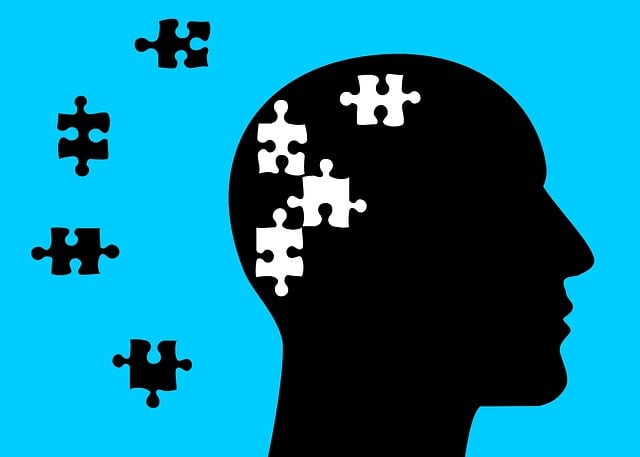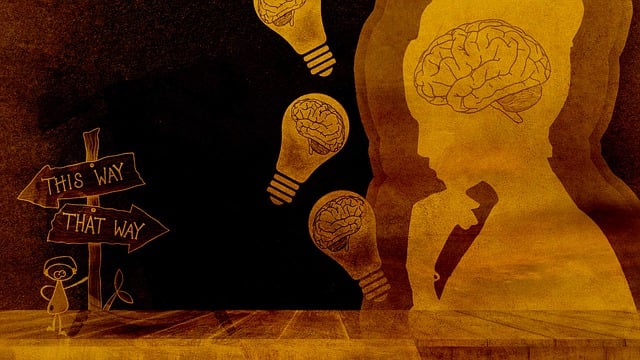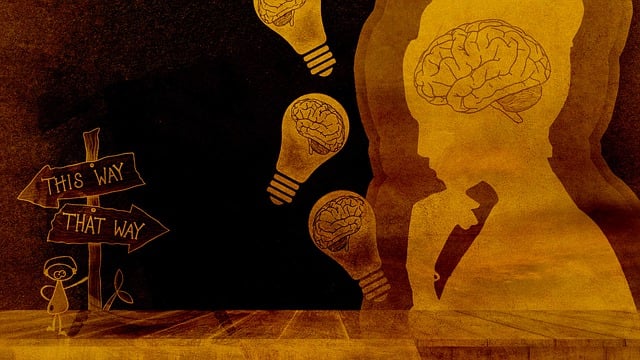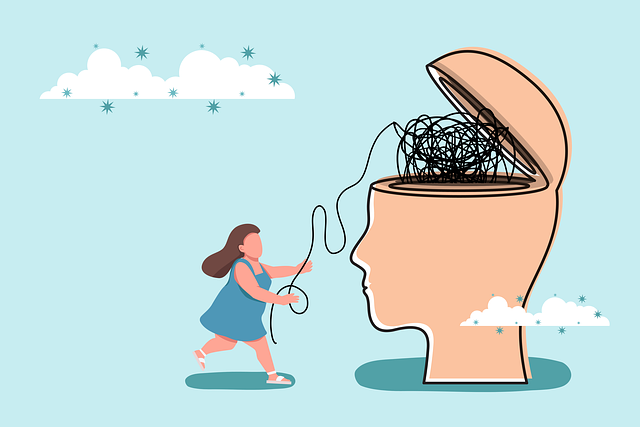Colorado Springs Adjustment Disorder Therapy offers effective tools for mood regulation, including Mental Wellness Journaling Exercises and Compassion Cultivation Practices, boosting self-awareness and emotional intelligence. Therapists collaborate with individuals to identify triggers, uncover personal histories, and challenge negative thought patterns through Cognitive Behavioral Techniques (CBT). Lifestyle adjustments like exercise, diet, sleep, mindfulness, and communication strategies complement therapy, enhancing well-being and resilience. Support systems provide safe spaces while professional help empowers individuals to manage severe mood disorders, improving quality of life through comprehensive mental health policy advocacy.
Mood regulation strategies are essential tools for maintaining emotional balance, especially in managing conditions like Colorado Springs Adjustment Disorder. This comprehensive guide explores various techniques to help individuals understand and navigate their moods effectively. From identifying triggers through therapy sessions in Colorado Springs to adopting cognitive behavioral techniques and lifestyle adjustments, each section delves into practical ways to enhance emotional well-being. Discover the power of support systems and professional help for a holistic approach to mood regulation.
- Understanding Mood Regulation Strategies
- Identifying Triggers and Patterns in Colorado Springs Adjustment Disorder Therapy
- Cognitive Behavioral Techniques for Effective Mood Management
- Lifestyle Adjustments to Enhance Emotional Well-being
- The Role of Support Systems and Professional Help in Mood Regulation
Understanding Mood Regulation Strategies

Understanding Mood Regulation Strategies is a key component in maintaining mental wellness. In Colorado Springs, Adjustment Disorder Therapy offers valuable tools and techniques to help individuals navigate their emotional states effectively. One powerful method gaining traction is Mental Wellness Journaling Exercise Guidance, which involves tracking thoughts, feelings, and experiences in a dedicated journal. This practice not only enhances self-awareness but also provides a safe space for processing emotions and identifying patterns.
Additionally, Compassion Cultivation Practices play a significant role in mood regulation. By fostering self-compassion and empathy towards oneself and others, individuals can reduce negative emotional reactions and cultivate a sense of inner peace. These practices, often integrated into therapy sessions, are designed to support mental wellness by promoting resilience and coping mechanisms that transcend the challenges of Adjustment Disorder.
Identifying Triggers and Patterns in Colorado Springs Adjustment Disorder Therapy

In Colorado Springs Adjustment Disorder Therapy, identifying triggers and patterns is a crucial step in managing and overcoming emotional challenges. Therapists work closely with individuals to help them recognize specific situations or events that can provoke intense emotions, which may otherwise be hard to pinpoint. By understanding these triggers, patients gain valuable insights into their emotional responses, enabling them to develop more effective coping strategies. This process involves exploring personal histories, recent stressors, and recurring themes in one’s life, all of which contribute to forming unique emotional patterns.
Through this exploration, therapists assist clients in cultivating higher levels of mental wellness by promoting emotional intelligence—the ability to recognize and manage both one’s own emotions and those of others. Emotional healing processes are initiated as individuals learn to identify and challenge negative thought patterns, replacing them with healthier alternatives. This proactive approach equips individuals with the tools needed to navigate life’s challenges more adaptively, fostering resilience and a greater sense of emotional balance in their daily lives.
Cognitive Behavioral Techniques for Effective Mood Management

Cognitive Behavioral Techniques (CBT) offer powerful tools for effective mood management. This evidence-based approach helps individuals identify and challenge negative thought patterns, replacing them with more balanced and realistic perspectives. By focusing on the connection between thoughts, feelings, and behaviors, CBT enables people to gain insight into their emotional triggers and develop coping strategies tailored to their unique needs.
In Colorado Springs, Adjustment Disorder Therapy often incorporates CBT methods to address mood-related challenges. These techniques are particularly effective in reducing symptoms associated with mental illness, fostering resilience, and promoting overall well-being. Moreover, cultural sensitivity in mental healthcare practice is crucial, ensuring that coping skills development is tailored to an individual’s background and experiences, contributing to successful long-term outcomes.
Lifestyle Adjustments to Enhance Emotional Well-being

Incorporating lifestyle adjustments is a powerful way to enhance emotional well-being and manage mood regulation. Simple yet effective changes can significantly impact one’s mental health, especially for those dealing with conditions like Colorado Springs Adjustment Disorder Therapy. Regular exercise, for instance, releases endorphins that boost mood and reduce stress. A balanced diet supports brain function and overall well-being, as certain foods are known to influence neurotransmitters linked to mood regulation. Adequate sleep is another cornerstone; it allows the body to rest and rebuild, which is essential for maintaining emotional resilience.
Additionally, cultivating mindfulness practices such as meditation or yoga can help individuals become more aware of their thoughts and emotions. This increased mental health awareness enables better coping skills development. Effective communication strategies are also vital; sharing feelings openly with trusted friends, family, or a therapist provides support and helps process difficult emotions. By integrating these lifestyle adjustments, individuals can take proactive steps towards managing their emotional well-being and fostering resilience in the face of life’s challenges.
The Role of Support Systems and Professional Help in Mood Regulation

Support systems play a pivotal role in mood regulation, acting as a cornerstone for individuals navigating emotional challenges. Strong social connections, whether with family, friends, or support groups, provide a safe space to express feelings and gain different perspectives on managing moods. These networks can offer practical assistance during difficult times, helping to implement coping strategies and promote overall well-being. For instance, a close friend might encourage engaging in activities that reduce stress, like organizing Stress Management Workshops Organization, which is beneficial for mood stabilization.
Professional help is equally vital, especially when facing severe or persistent mood disorders. In cases where everyday coping mechanisms fail, seeking specialized support from therapists or counselors can be transformative. Colorado Springs Adjustment Disorder Therapy, for instance, focuses on identifying and changing negative thought patterns and behaviors, empowering individuals to manage their moods effectively. This professional guidance, coupled with a robust support system, forms a comprehensive approach to mental health policy analysis and advocacy, ultimately fostering better mood management and enhancing the quality of life.
In conclusion, mood regulation strategies are essential tools for managing emotional well-being, especially those suffering from conditions like Colorado Springs Adjustment Disorder. By understanding triggers, identifying patterns through therapy, adopting cognitive behavioral techniques, and making lifestyle adjustments, individuals can effectively manage their moods. The role of support systems and professional help cannot be overstated; they provide the necessary guidance and resources for successful long-term emotional regulation.













